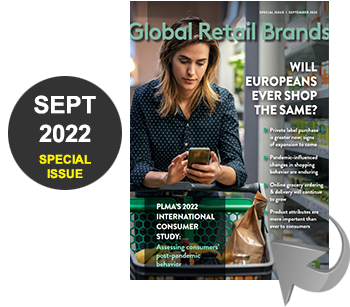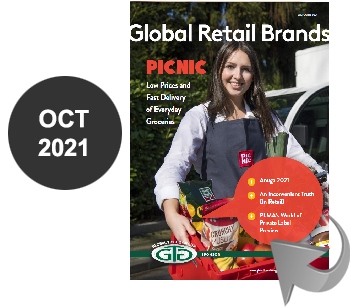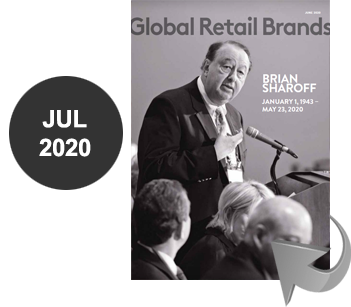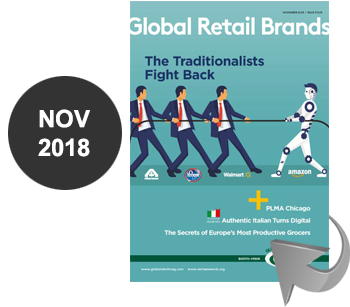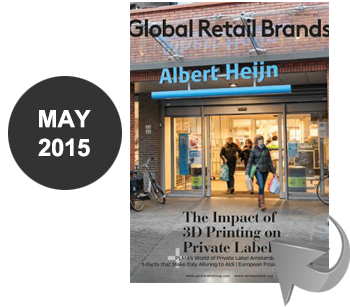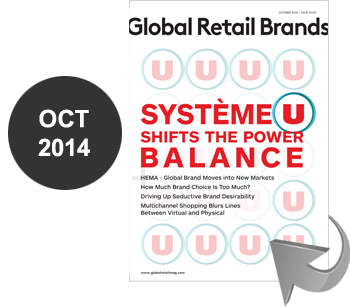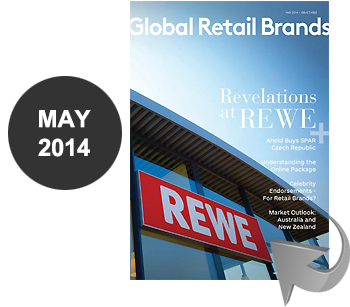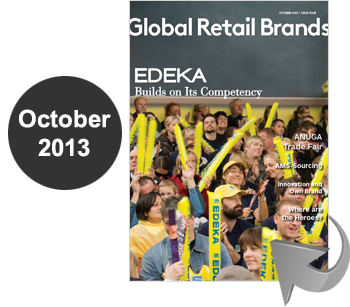
By Matthias Queck Research Director, Planet Retail – Western Europe and Grocery
Highlights
- ProMarkt trauma triggers major change
- Seeking offline-online synergy
- Discounters are on a 3-D mission
Implications
- Again, Rewe Group’s management has (rightly) sung the praises of its co-operative store owners. The success of independent shopkeepers is a Europe-wide rather than a company-specific phenomenon. It would come as no surprise should Rewe Group try to take the independent (or franchised) store model from Germany, Austria and Italy to its Central European markets.
- Rewe Group’s investment in grocery e-commerce is a journey to the future with an uncertain destiny, and the management is fully aware of this. However, it could provide the company with a generator for future growth – once online food shopping has become the norm – that competitors will have difficulties following. It will require persistent work to get full backing from the co-operative members (who operate the Rewe stores, after all).
- What is completely uncertain is the long-term impact of online shopping on bricks and mortar retailing: sales, sales densities, returns, footfalls, store rentals, logistics, shopping malls, city centers, urban culture, etc etc. The impact can only be underestimated at this point of time. All credit is due to CEO Caparros for making the traditionally minded German grocery scene aware of this – even if it means upsetting the apple cart.
- After the ZooRoyal acquisition, we expect Rewe Group to invest in other online-friendly categories such as, say, parent and baby items. Having a web shop for nappies, for example, would allow the retailer to better explore the lucrative drugstore categories.
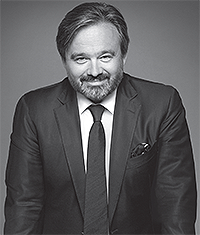 Imagine there’s never been a supermarket >>
Imagine there’s never been a supermarket >>
The world has always ordered food online, delivered conveniently to their home. And now someone comes along who wants to convince you of a concept that requires you to get in your car, drive to a location that could be over a mile away, spend time finding a parking space – for which you have to pay – as you also do for the trolley you then steer through endless rows of cavernous aisles to locate the goods you need by yourself…
…Which is followed by waiting in a checkout queue, packing your own bags and driving them back home… And this concept is dubbed a ‘supermarket’. Exactly what, you ask, makes it so ‘super’? All that effort for what..? Just the EUR5 (USD6.85) delivery fee you save?
As he outlined the vision described above before the attendant journalists at this year’s annual Rewe Group results press conference , o n e thing became clear. It was nothing less than the legitimacy of Rewe’s core business, the physical supermarket, that Alain Caparros was singling out as one of the most pressing challenges in food retail.
It is not the first time the Frenchman – who has been Rewe Group CEO since 2006 and whose contract has just been prematurely extended until the end of 2018 – has highlighted this threat, but rarely has he been this emphatic. The main trigger for his thinking, it is understood, was the company’s inability to keep pace with the online dynamics in electronics retailing. This inertia forced the company to sell off or close down its ProMarkt electronics superstores last year – an experience that has clearly sent shockwaves through the management.

ProMarkt trauma triggers major change >>
This is why Rewe Group is investing heavily in the e-commerce business, Caparros and his compatriot Lionel Souque, Head of the supermarket business in Germany, made clear. “France and the UK are far ahead,” Souque commented alongside the Rewe boss. “Once the Germans are ready for it, we will be prepared.” So far, grocery e-commerce is a tiny operation for Rewe, but one the Frenchmen expects to grow fast – without knowing exactly how fast.
Over the past 12 months, the co-operative group has begun building its own Silicon Valley, investing in small Internet start-ups to make up lost ground in e-commerce. It has bought a stake in online furniture retailer Home 24 to learn more about the business, and has recently acquired online pet care specialist ZooRoyal. Former Tesco manager Jean-Jacques Van Oosten has been appointed to the newly created post of Chief Digital Officer in order to drive the “digitalization of the business”.
Rewe has expanded its grocery home delivery services in Germany as well as in Austria. The group is reportedly looking for up to 200 people to support a web team, including marketing and IT experts, plus finance and trading specialists. At the press briefing, Caparros said another prominent online manager would be appointed effective 1 May this year.
 “It is a fact that we will (inevitably) face a loss in earnings and sales in the physical business,” he said in a grim forward-looking statement intended to justify the investments in grocery e-commerce. Reacting to a question from Planet Retail, he hinted at the wider implications of online shopping taking over more and more categories:
“It is a fact that we will (inevitably) face a loss in earnings and sales in the physical business,” he said in a grim forward-looking statement intended to justify the investments in grocery e-commerce. Reacting to a question from Planet Retail, he hinted at the wider implications of online shopping taking over more and more categories:
“In the future, who will provide the variety and appeal in city centers?” Caparros said, adding that today’s “lease agreements are a blank check issued under the hypothesis that the (retail) environment remains as it is.” – an allusion to the fixed costs that a static business will inevitably generate regardless of how e-commerce evolves. It is also a situation unlikely to improve on the cost side given continuing demographic pressure, with potentially shrinking populations, rural exodus, greater urbanization and, hence, rising rentals on city centre locations.
Seeking offline-online synergy >>
Interlocking online and offline appears to be the obvious solution. It is no secret that so far online sales just make a fractional contribution to group sales, and the situation is not so different for any other German (food) retailer. But online is also the reason why Rewe Group is investing in formats to make its retail outlets more appealing.
Of course, the largest tranche of its EUR1.6 billion (USD2.2 billion) investment program will still flow into the bricks and mortar business. Internationally, more than 1,300 will be refurbished this year, with 365 new stores opened in Germany and abroad. The Temma organic food and Rewe to Go convenience concepts have completed their trial phases and are now being rolled out – the latter to several Aral petrol stations for the first time.
Independent shopkeepers under the Rewe banner again made an above-average contribution to group sales, and they are being further strengthened under the ReweFormer 2.0 scheme. Rewe is now actively seeking entrepreneurs to take over stores, even leading company managers – Caparros: “We have a waiting list of highly remunerated managers applying to become shopkeepers.” Gone are the days that independent status was the last resort for an underperforming, corporatelyrun supermarket.
Made by Rewe >>
The Made by Rewe bistro concept, adjacent to Rewe supermarkets, has so far produced only “unsatisfactory” results.
Introducing bistros and restaurants, creating marketplaces for shoppers to dwell, communicate and socialize, has been a major plank of Rewe Group’s strategy to make the traditional business more attractive. This has worked out well at the first converted hypermarket – the rebannered Rewe Center store in Egelsbach (formerly Toom), where cumulated sales increased 41%. It has so far worked less well for Made by Rewe, a bistro concept launched last year at three locations, where apparently adjustments are “absolutely necessary”.

Discounters are on a 3-D mission >>
Still hanging in the balance is the future of the group’s discounter arm. “We do have the discounter gene,” Caparros asserted, referencing the successful and profitable Penny operations abroad. This success, however, has not migrated to its German business, where break-even is expected in 2016 following an ongoing, comprehensive store refurbishment scheme for what he called a “legacy burden”. Sales at Penny grew 0.6% last year, due to closures, and 3.1% internationally. The situation is not improving, though.
Penny is suffering from headwinds in the German discount segment as market leader Aldi has launched several rounds of permanent price reductions since the beginning of the year that Penny has been forced to follow. “50% of the discount customers are ‘must-savers’”, Jan Kunath, Head of the Discount National Division said, meaning those who change their shopping destination for small savings – mostly moving between different discounters rather than between discounters and other formats.
“Discounters fulfill a social mission,” his International Discount colleague Manfred Esser insisted, “Costs that have been imposed on the citizen are being compensated by shopping at discounters.” He expects the rounds of price cuts to continue.
Nonetheless, Caparros sees the discounter model faced with a three-dimensional challenge. Beyond price, there is range composition and morale. That is, increased discussion regarding the impact of low prices on farmers, animal welfare, the environment and on staff.
In general, the Rewe boss welcomed people wishing to buy sustainable and organic products, wanting for friendly shop staff and beautiful stores. However, he continued, they are mostly unwilling to pay for these things. Caparros’ new personal mission, therefore, is to open a public affairs office in central Berlin, in order to make politicians and functionaries aware of the challenges co-operative grocery retailing faces, sandwiched between Aldi and AmazonFresh. The latter has just announced its launch in Germany, scheduled for no later than September this year.

















